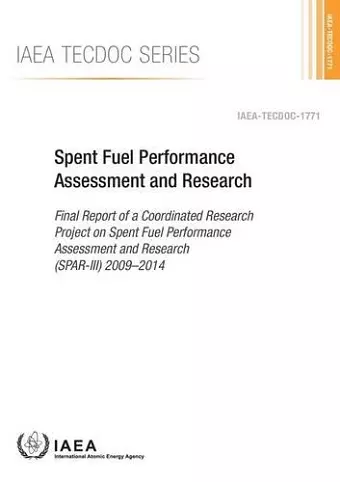Spent fuel performance assessment and research
final report of a coordinated research project on spent fuel performance assessment and research (SPAR III) 2009-2014
International Atomic Energy Agency author
Format:Paperback
Publisher:IAEA
Published:17th Dec '15
Should be back in stock very soon

At the beginning of 2014, there were 437 nuclear power reactors in operation and 72 reactors under construction. To date, around 370 500 t (HM) (tonnes of heavy metal) of spent fuel have been discharged from reactors, and approximately 253 700 t (HM) are stored at various storage facilities. Although wet storage at reactor sites still dominates, the amount of spent fuel being transferred to dry storage technologies has increased significantly since 2005. For example, around 28% of the total fuel inventory in the United States of America is now in dry storage.Although the licensing for the construction of geological disposal facilities is under way in Finland, France and Sweden, the first facility is not expected to be available until 2025 and for most States with major nuclear programmes not for several decades afterwards. Spent fuel is currently accumulating at around 7000 t (HM) per year worldwide. The net result is that the duration of spent fuel storage has increased beyond what was originally foreseen. In order to demonstrate the safety of both spent fuel and the storage system, a good understanding of the processes that might cause deterioration is required. To address this, the IAEA continued the Coordinated Research Project (CRP) on Spent Fuel Performance Assessment and Research (SPAR-III) in 2009 to evaluate fuel and materials performance under wet and dry storage and to assess the impact of interim storage on associated spent fuel management activities (such as handling and transport). This has been achieved through: evaluating surveillance and monitoring programmes of spent fuel and storage facilities; collecting and exchanging relevant experience of spent fuel storage and the impact on associated spent fuel management activities; facilitating the transfer of knowledge by documenting the technical basis for spent fuel storage; creating synergy among research projects of the participating Member States; and developing the capability to assess the impact of potential deterioration mechanisms on spent fuel and storage components
ISBN: 9789201082152
Dimensions: unknown
Weight: unknown
216 pages